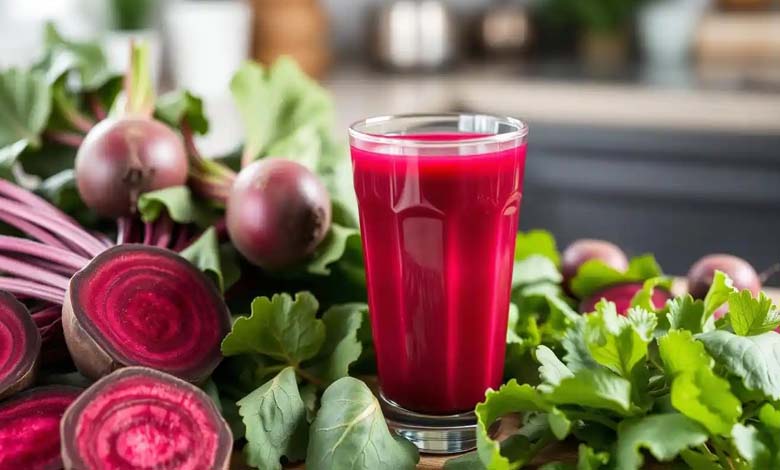Does Beetroot Juice Help Detoxify the Liver? A Deep Scientific Analysis

In recent years, liver detoxification has become a focal point in discussions surrounding health, wellness, and functional nutrition. Among the various foods labeled as “detoxifying,” beetroot juice frequently emerges as a natural remedy reputed to cleanse the liver, eliminate accumulated toxins, and enhance hepatic function. But how substantiated are these claims? Can beetroot juice truly support liver detoxification? To explore this question thoroughly, we must examine the biochemical properties of beetroot, the physiological mechanisms of liver detoxification, and the current clinical evidence.
-
5 Types of Fruits to Detoxify Your Body in Summer
-
Coconut Water or Coconut Milk — Which is Healthier for You?
Beetroot (Beta vulgaris) is a root vegetable rich in essential nutrients and bioactive compounds. It contains significant amounts of naturally occurring nitrates, which are converted into nitric oxide in the body—a key molecule in vasodilation and improved blood circulation, including in hepatic tissues. Additionally, beetroot is packed with betalains, water-soluble pigments known for their strong antioxidant and anti-inflammatory effects, as well as folate, vitamin C, fiber, iron, magnesium, and potassium. These nutrients work synergistically, providing physiological support not only to general health but specifically to liver function.
-
Eating Papaya on an Empty Stomach: A Morning Habit That Boosts Digestion
-
5 Summer Fruits That Naturally Lower Uric Acid Levels
The liver plays a crucial role in the neutralization and elimination of toxic substances. It metabolizes alcohol, medications, hormones, food additives, and environmental pollutants through complex biochemical processes. In Phase I detoxification, enzymes such as cytochrome P450 convert lipophilic toxins into more reactive intermediates. Phase II enzymes (e.g., glutathione-S-transferase, sulfotransferases, and UDP-glucuronosyltransferases) then conjugate these intermediates with water-soluble molecules to facilitate their excretion via bile or urine. An imbalance in these phases can lead to hepatic overload and cellular damage.
-
Chlorophyll Supplements: A Health Miracle or Just a Myth?
-
“Miracle Berry”: Exploring Its Health Benefits, Taste-Altering Properties, and Potential Risks
This is where beetroot antioxidants may play an important role. Animal studies have demonstrated that beetroot extracts can enhance Phase II enzyme activity, reduce lipid peroxidation in liver cells, and restore glutathione levels—one of the body’s most critical intracellular antioxidants. Therefore, regular consumption of beetroot juice could theoretically help support liver detoxification capacity and mitigate chronic oxidative stress, which is implicated in the development of various liver diseases such as non-alcoholic fatty liver disease (NAFLD), fibrosis, and even cirrhosis.
However, while these experimental results are encouraging, direct extrapolation to humans must be done with caution. Clinical trials investigating the effects of beetroot juice on human liver function are still limited, and most focus on cardiovascular benefits rather than hepatic detoxification. In other words, while beetroot juice has shown promise in improving blood pressure, physical endurance, and cognitive function due to its nitrate content, its direct impact on liver detoxification in humans remains to be clearly demonstrated through more robust and large-scale randomized controlled trials.
Moreover, the notion of “detox” is often misunderstood. The liver is an incredibly efficient and autonomous organ when it comes to purification. Unless impaired by disease, it doesn’t require external “cleansing” per se. What foods like beetroot juice can provide are nutrients that indirectly support its functions—by reducing inflammation, supplying antioxidants, and enhancing hepatic perfusion. Thus, beetroot juice serves more as nutritional support rather than a miracle detoxifier.
In summary, incorporating beetroot juice into a balanced, plant-rich diet may offer supportive benefits for liver health, primarily due to its antioxidant, anti-inflammatory, and vasodilatory properties. However, it’s essential to approach the detox narrative with a critical mind and avoid exaggerated claims. A healthy liver is best maintained through a comprehensive lifestyle strategy: anti-inflammatory nutrition, adequate hydration, avoidance of toxins, regular exercise, and stress management.












